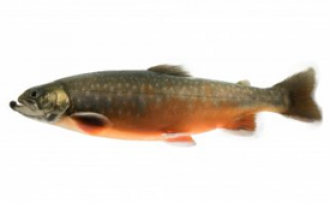- Research
- Fish tagging
- Lumpfish research
- Oceanography
- Seabed mapping
- Arnarfjörður
- Drekasvæði
- Ísafjarðardjúp
- Jökulbanki
- Jökuldjúp
- Kolbeinseyjarhryggur and adjacent area
- Kolluáll
- Langanesgrunn
- Látragrunn
- Nesdjúp
- Reykjaneshryggur and adjacent area
- Selvogsbanki
- South of Selvogsbanki
- South of Skeiðarárdjúp
- South of Skerjadjúp
- Southeast of Lónsdjúp
- Southwest of Jökuldjúp
- Suðausturmið
- Suðurdjúp
- Vesturdjúp
- East of Reykjaneshryggur
- Vestfjardarmid
- Seal research
- Whale Research
- Advice
- About
Freshwater Division

The Freshwater division of MFRI, which primarily focuses on freshwater ecosystems, has its headquarters in Reykjavik, with branches in West (Hvanneyri) and South Iceland (Selfoss). There are 14-15 employees working part- or fulltime at the division. The main emphasis is on basic and applied research of freshwater ecosystems, monitoring, consultancy and advice to stakeholders. The research projects are mostly short-term projects, running 1-5 years, which usually are funded by national and international research grants. Most of these research projects have been carried out in collaboration with national and/or international institutions and universities. This may include supervising postgraduate students or recruitment of post-doctoral fellows.
According to the Icelandic Salmonid Fisheries Act no. 61/2006 (Lög um lax- og silungsveiði nr. 61/2006) utilization of fish stocks in freshwaters must be sustainable. Monitoring of fish stocks is therefore a large part of the Freshwater division’s task. The monitoring involves systematic measurements on primary and secondary producers in rivers and lakes, as well as monitoring of abiotic factors. Monitoring of exploited fish stocks is an important part of the routine tasks for the Freshwater division. These tasks may include monitoring spawning stock size, recruitment, size of the run, exploitation and marine mortality. The monitoring is carried out on all four freshwater fish species found in Iceland, Atlantic salmon, brown trout, Arctic charr and European eel. All these species can or need to migrate between freshwater and sea, therefore information on their growth and survivorship needs to be obtained in freshwaters and sea. Monitoring of Atlantic salmon is important for the work within ICES that gives advises on the potential of harvest at sea. Long-term monitoring is important to assess population changes and to detect if or how environmental factors may affect freshwater organisms. Information from long-term monitoring are therefore vital platform for building freshwater management on and for understanding changes, such as the nature of climate change and their impact on freshwater ecosystems.
| Name | Job Title |
|---|
